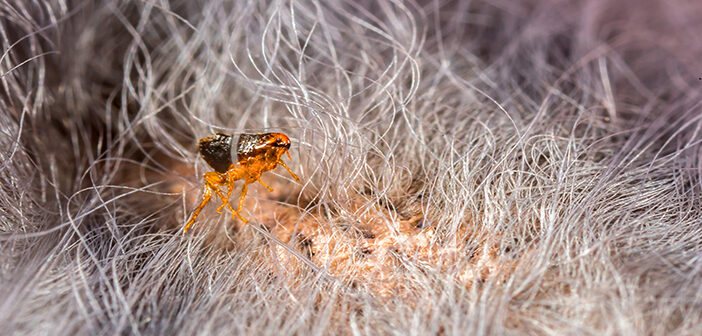Enquiries relating to suspected flea infestations have increased by nearly half (47%) in just one year, according to new figures.
Rentokil Pest Control believe the unusual weather experienced so far in 2023 could be the reason behind this increase. The country saw its respective warmest June since 1884, with all four home nations reporting their warmest June on record. This was then followed by above average (170%) rainfall in July, making this provisionally the wettest July since 2009.
Fleas thrive in moist, warm conditions – and the recent weather has created the perfect breeding conditions during what is often referred to as ‘flea season’.
Paul Blackhurst, head of Technical Academy at Rentokil Pest Control, said: “Fleas are a common household pest, particularly for those with pets. Seeing fleas jumping around can be alarming and their bites can cause an uncomfortable itch or a reactive rash, particularly around legs and ankles.
“Prevention of fleas is difficult as they usually enter properties on a pet, and then can quickly find refuge in carpets and bedding. They are able to jump long distances and move between pets and property with ease. There are 62 species of flea in the UK (the most common being the cat flea (Ctenocephalides felis), each with different habits, which can make treating them difficult.
“They thrive in warm conditions, but their eggs can remain dormant for up to two years in colder temperatures and the larvae will emerge when the conditions are right.”




